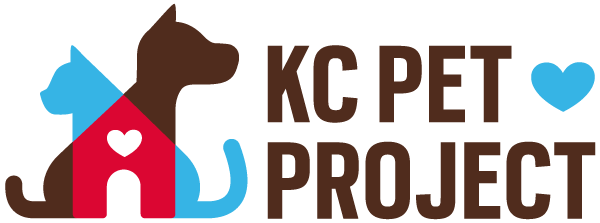By: KC Pet Project
This is a complex issue, and we recognize people may believe mandatory spay/neuter laws will compel more people to sterilize their pets and thus, fewer pets will be born, and fewer unwanted pets will end up in shelters. But this has been proven in communities across the country to be untrue.
In fact, every major animal organization in the United States opposes any type of mandatory spay/neuter legislation including the ASPCA, the Humane Society of the United States, Best Friends Animal Society, the No Kill Advocacy Center, the American Veterinary Medical Association, and the American Kennel Club. These laws unfairly discriminate against low-income families and have been proven in cities across the country to be ineffective at improving community safety or lowering the population of unwanted pets. These laws have been shown to be extremely difficult to enforce, are expensive, and divert critical resources from Animal Services divisions and law enforcement.
The primary reason residents do not spay/neuter their pets is economic. Every data-based study of mandatory spay/neuter laws has demonstrated that such laws do NOT increase spay/neuter compliance rates, nor do they reduce shelter intake, nor are they cost effective. In fact, families who cannot afford or cannot access veterinary services for their pets would be forced to surrender their pets (or their pets are seized by Animal Control). Not only does that result in thousands more dogs being needlessly surrendered to our already over-crowded city shelter, but these pets are quickly replaced by additional unaltered animals.
Residents who cannot afford to pay hundreds of dollars to have their pets spayed/neutered (or have no access to those services) are the primary targets for enforcement – which includes tens of thousands of low-income families already struggling to pay their bills and feed their families in Kansas City. We should be empowering families and helping residents access the resources they need, not threatening and punishing families who care about their pets but have limited financial resources. We should not enforce ordinances that set up under-resourced and low-income residents for punitive actions, including expensive fines, court dates, taking pets away from families, and potentially euthanizing animals that already have homes – simply because residents are unable to afford or access the few low-cost veterinary resources available in KCMO. These practices are systemically inequitable and solely impact the most vulnerable and marginalized of communities.
In 2016, KC Pet Project and Pet Resource Center of KC came together to propose changes to Chapter 14 of the City Code. In response, city officials conducted multiple neighborhood surveys and hosted public meetings across the city about the proposed changes. One of the many proposed changes was the repeal of Section 14-60, which mandates the spay or neuter of any dog classified as a “pit bull” by 8 weeks of age and penalties include impoundment and jail time for a subsequent offense. This ordinance has consistently misdirected City resources for many years including animal control officer time responding to complaints, issuing citations, and impounding animals, all based on the appearance of the animal, not the animal’s behavior.
Previous enforcement tactics included KCMO Animal Control officers doing “sweeps” through low-income neighborhoods – writing expensive citations and seizing beloved family pets. This resulted in the euthanasia of thousands of pit bull type dogs from 2007 – 2011, but never reduced the number of pit bulls or unaltered dogs in the community or the number of animals coming into the shelter.
The COVID-19 pandemic started with a surge in pet adoptions, but what followed was another dramatic – and unfortunate – effect. New research estimates the U.S. is now nearly 3 million spay/neuter surgeries behind over the last two years due to vet clinics across the country suspending or severely limiting nonessential surgeries (such as spay/neuter) during the pandemic. Combined with veterinarian and staff shortages, this backlog is contributing to widespread overcrowding at animal shelters everywhere, including Kansas City.
The only proven, effective program for addressing these issues in cities are affordable spay/neuter and pet support services for owned pets, along with Trap/Neuter/Return programs for community cats. Efforts are desperately needed in Kansas City to increase affordable, accessible veterinary resources and outreach in our most under-resourced neighborhoods where spay/neuter services for pets are scarce or not available. We are working diligently to expand our ability to provide services to more KCMO families.
We need more affordable, accessible veterinary resources throughout the entire city of Kansas City – including transportation resources available for those unable to get their pets to the veterinarian. More affordable, accessible veterinary resources also has public health benefits, as it would allow more residents to obtain rabies vaccines for their pets – which can be a huge financial barrier for low-income families.
To begin addressing the issue, KC Pet Project will launch our new Pets for Life program in early 2023 – a nationally recognized program funded by a grant from the Humane Society of the United States – to help close the service gap that exists in one of the most underserved zip codes in Kansas City, Missouri (64127). Historically, this zip code has a higher rate of poverty and reduced access to both human and pet resources, resulting in some of the highest rates of animal services calls and some of the highest numbers of loose and free roaming animals. Pets for Life addresses inequity and lack of access to pet support services by offering spay/neuter surgeries, basic veterinary care, pet products, and ongoing resources at no cost to pet families who have the least access to animal wellness services and information. The only real solution is working together to find resources to increase access to care for vulnerable pet families in our community and provide more low-cost or free spay/neuter services to KCMO residents who need it for their pets.
National Resources
ASPCA – Position Statement on Mandatory Spay/Neuter Laws
National Animal Care & Control Association (NACA) – Statement on Breed Specific Legislation

